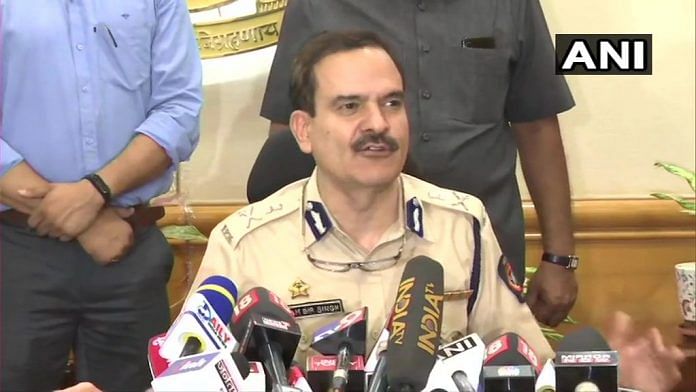If politicians in power appoint honest and competent officers in leadership positions in the police forces across India, the security management would have been much better than what it is now. But if choices are made because of an officer’s willingness to go along with a party’s ideological commitments, communalism and injustice take a massive hop-step and jump. If the choice is based on money exchanged or to be exchanged in future, corruption and injustice take a similar trajectory. Both are harmful to the polity and to the country’s advancement. To my mind, both choices are anti-national.
The choice of police leaders rests with politicians in power. The National Police Commission and the Supreme Court had agreed that the choice of the DGP of a state and police commissioners of the big cities should be made by consensus or majority vote cast by the prime minister/chief minister, the Leader of the Opposition and the Chief Justice of the Supreme/State High Court. That this wise advice is not being honoured by any government is a matter for public concern.
If Param Bir Singh had been appointed Mumbai’s Police Commissioner in this wise manner, the Bharatiya Janata Party (BJP), in opposition, would not have a leg to stand on when it complained of a high-end corruption demand, allegedly made by Maharashtra home minister Anil Deshmukh. The home minister belongs to Sharad Pawar’s Nationalist Congress Party (NCP). In the division of portfolios between the three parties that constitute the Maha Vikas Aghadi (MVA) in my state, the NCP got the much sought after home portfolio.
Also read: Mumbai police-politics-underworld nexus unravels with Waze, Param Bir Singh & Anil Deshmukh
How corruption catches cops
The Mumbai City Police was a good force. It still is. It never failed to perform when properly led. Much depends on the leader. In fact, it all depends on him. When a wrong choice is made, a downward slide begins. The not-so-good juniors relax, the good are confused and know not what to do. Corruption hits the roof. Discipline is given a go-by. Mercifully, this does not occur too often because the political parties in Maharashtra all know that the performance of the Mumbai Police can make or break the government itself, in a manner of speaking.
Sharad Pawar in his heydays had complete control of the police. He knew each senior officer, their strengths, weaknesses and foibles. He appears to have lost his touch. Or did the compulsions of a coalition government force his hand? According to information available with me, Pawar had two marathon meetings with Param Bir Singh before the latter was appointed to the top post. Did he probe into the feedback he must have received about the officer? Particularly, about his sojourn in the neighbouring Commissionerate of Thane? His party’s operatives in Thane must have given their chief an appraisal of the officer’s rapport with his subordinates and with the general public. What must they have reported?
Also read: Ex-cop, bookie, 93 SIMs, 14 phones, 3 days, WhatsApp — how Mansukh Hiran ‘murder was planned’
The Waze mystery
The induction of an ‘encounter specialist’ who had been on suspension for the past 13 years, but was suddenly drafted back into service by defying all rules of decency and morality, and even rules enjoined by law, was an indication of the type of police administration that was in store. The appointment of an assistant police inspector (API) as head of the Crime Intelligence Unit in the Crime Branch was the next indication. Even greater folly of trampling over norms of discipline by ignoring the hierarchical structure and permitting API Sachin Waze to report directly to the commissioner himself was the last straw that broke the camel’s back.
The mighty Mumbai City Police and its nationally known Crime Branch was turned into a plaything in the hands of a junior subordinate officer. The API, as we now know, allegedly arranged for a car laden with twenty gelatin sticks to be parked outside the residence of Mukesh Ambani, India’s biggest industrialist. There was a note inside the car addressed to Mukesh and his wife, Nita. It warned of dire consequences if – what? That has not been clearly spelt out, but a good guess can be made.
If an officer of this rank, so closely associated with the city’s top cop and taking orders directly from him, has the temerity to try and frighten an internationally known businessman and his wife, equally well known in cricket and educational circles, at whose instance did he plant that car with the gelatin sticks and what was the motive?
The date on which the car was parked, the date on which the alleged demand of ‘Rs 100 crore a month’ from the police was made and conveyed to Param Bir Singh by API Waze and ACP Sanjay Patil of the lucrative Social Service Branch, the date on which Param Bir Singh informed the chief minister Uddhav Thackeray of the demand, the date on which his outrageous and alleged demand found its way to the press — all have to be clearly determined before any conclusion is arrived at about the possible motive.
I refuse to believe that Waze, even though he possessed the ability to execute a really big crime, would have thought of intimidating a heavily guarded top-drawer industrialist in an attempt to extort big bucks. The very thought of pulling off such a bold crime is not only ridiculous but also ludicrous. Was there a person so insane that he could think of such a strategy to meet an equally ridiculous demand of Rs 100 crore a month? There is obviously some other explanation for the stupidity. That needs to be established.
The author is a retired IPS officer, former Mumbai Police commissioner and DGP, Gujarat and Punjab. Views are personal.
Edited by Anurag Chaubey
